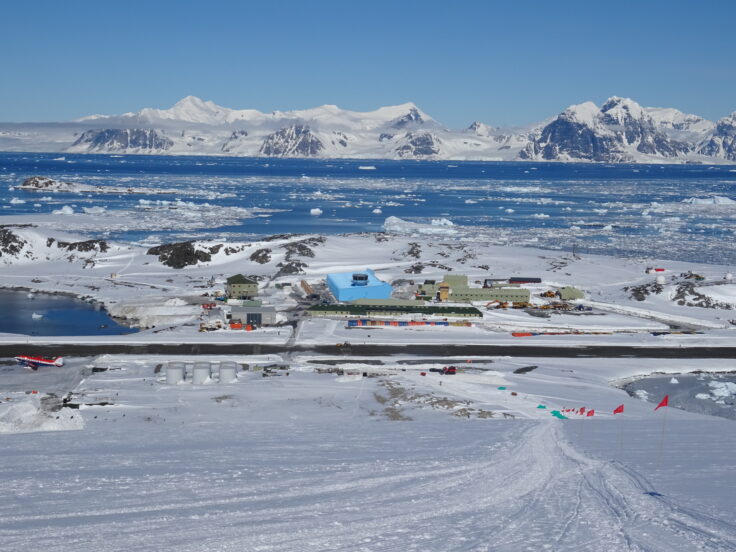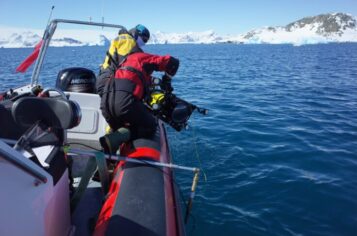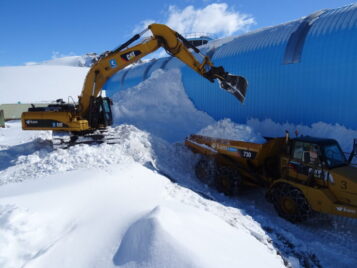
Construction has begun in Antarctica for the British Antarctic Survey, with specialists arriving at Rothera Research Station to progress several projects to secure the future of polar operations and research.
In a first for the Antarctic Infrastructure Modernisation Programme, some of the construction team, along with BAS team members, will be working through the Austral or Antarctic winter, known as “wintering.” This will see eight construction team members stationed at Rothera for seven months during Antarctica’s winter season from May through November, in which some periods are spent in 24-hour darkness, with harsh polar weather.
The season will see the team take further steps toward completion of Rothera’s science and operations facility – the Discovery Building – as much of the mechanical and electrical installation and internal fit-out is delivered. Across the next six months, teams will also be installing windows, completing flashings and finalizing most of the cross-site utility works.
During the upcoming season, teams will commence the critical work to resurface Rothera’s runway, which has been in operation for over 30 years. The runway resurfacing work will maintain safe flying operations in and out of Rothera to guarantee field science operations for UK and international scientists, and is expected to be completed by spring 2024.
There are over 100 construction specialists working on the project this season, with around a third of the team returning from previous years. The team consists of civil and structural engineers, as well as mechanical and electrical trades for the internal fit-out of the new building.
BAS has commissioned a team of its scientists to conduct a comprehensive pre-construction environmental baselining survey for an infrastructure project. The findings from this survey will become an important part of informing future work in the region as the AIMP team and BAS scientists continue to work together to deliver solutions.
The program forms part of the UK Government’s long-term investment in the Polar Regions, enabling the UK to continue to lead climate, biodiversity and ocean research and innovation in the southernmost continent of the globe.
The program is delivered in partnership with BAM, Ramboll and Sweco.
Photo credits: British Antarctic Survey




 Join our thriving community of 70,000+ superintendents and trade professionals on LinkedIn!
Join our thriving community of 70,000+ superintendents and trade professionals on LinkedIn! Search our job board for your next opportunity, or post an opening within your company.
Search our job board for your next opportunity, or post an opening within your company. Subscribe to our monthly
Construction Superintendent eNewsletter and stay current.
Subscribe to our monthly
Construction Superintendent eNewsletter and stay current.